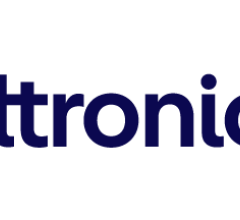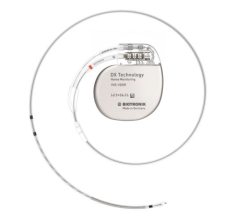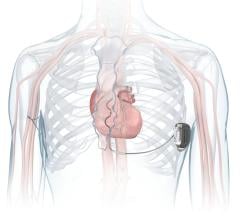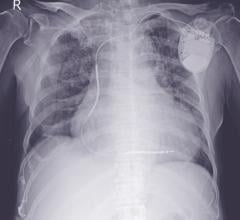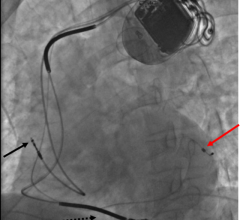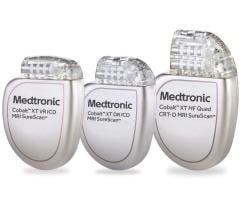
December 6, 2011 — Boston Scientific Corp. announced U.S. Food and Drug Administration (FDA) approval of its Incepta, Energen and Punctua cardiac resynchronization therapy defibrillators (CRT-Ds) and implantable cardioverter defibrillators (ICDs). The devices are indicated to treat heart failure and sudden cardiac death.
They offer enhanced therapy options, advanced battery longevity and a DF4 universal connector system in a small, thin platform. The first implant of the Incepta ICD occurred Nov. 29 at the University of Washington Medical Center in Seattle; the procedure was performed by Jeanne E. Poole, M.D., FHRS, FACC, professor of medicine and director, Arrhythmia Service and Electrophysiology Laboratory.
"These devices are a direct response to what patients tell us they want the most — small, thin, long-lasting devices that provide appropriate therapy when necessary," said Poole. "Additionally, these devices are designed to streamline the implant procedure with Boston Scientific's 4-SITE DF4 connector system."
The connector system reduces the volume of the company’s single-chamber ICDs to 30.5cc and CRT-Ds to 32cc, while maintaining a thickness of less than 10mm. The 4-SITE system is also designed to simplify and reduce the time needed for the implant procedure; it accomplishes this by combining three separate lead terminals into one integrated connection and leveraging the new EZ-4 Connector Tool. This allows physicians to reduce the number of steps required during implant.
Each of the new devices also features options to integrate with the Latitude Heart Failure Management weight scale and blood pressure cuff sensors. In this way they can promote appropriate therapy, reduce right ventricular pacing and improve patient management.
"Including remote monitoring as a standard for patients will assist physicians involved in the management of this very complex disease. By involving patients in that process, it could also motivate them to become more engaged in their own care," said Leslie A. Saxon, M.D., chief of cardiovascular medicine at University of Southern California. Saxon is also committee chair of the ALTITUDE clinical program sponsored by Boston Scientific. "In the ALTITUDE Survival study, patients with remote monitoring had a lower mortality rate."
For more information: www.bostonscientific.com


 January 13, 2026
January 13, 2026 

